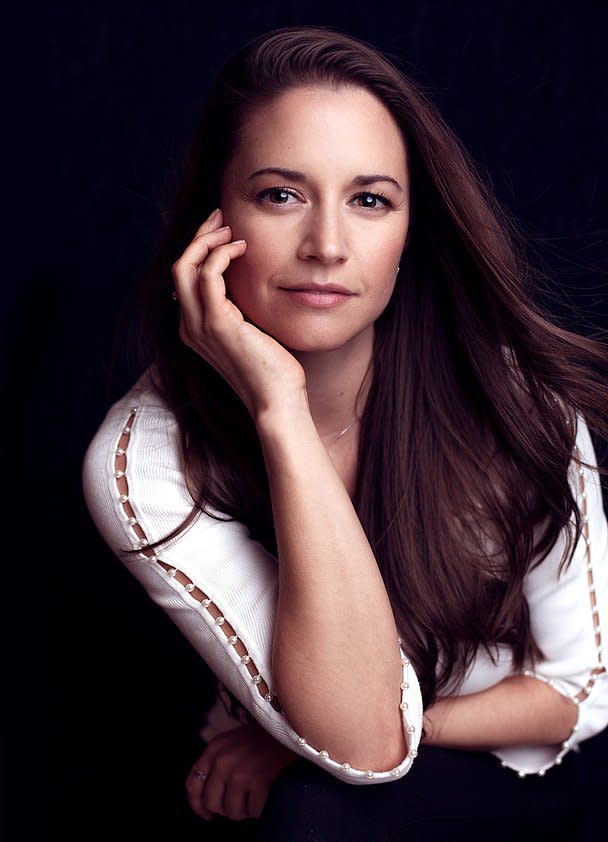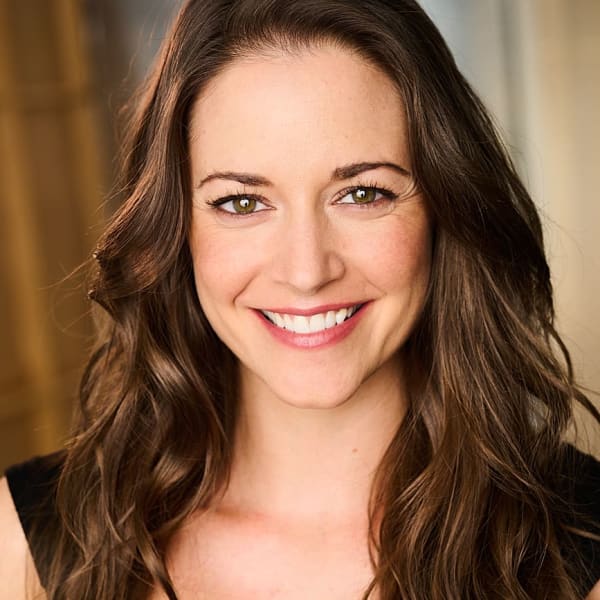From Skeptic to Meditation Teacher

Mindfulness educator Christina Dufour didn't set out to make meditation the center of her career, but she knew she had to share with others once it pulled her in.
Here, she talks about meaningful relationships, the teachers who've impacted her work, and why being consistent in a meditation practice brings the most significant benefits.
Q: How were you introduced to meditation?
A: I first came across meditation about 12 years ago through a yoga at sunset program from Sara Ivanhoe offered on Comcast On Demand. I began doing that in my living room regularly. I started going to yoga teacher training a couple of years later; that was my first formal in-person exposure to meditation.
There were longer meditations incorporated into our yoga sessions, and practicing with a group helped me discover meditation in a new and more profound way. It all kept evolving from there through serendipitous happenings and following my interests. Considering I was a firm skeptic when I began, it's impressive I've come this far, and I'm so grateful that I have!

Q: What's your top tip for a beginning meditator?
A: Trust yourself to be your guide in meditation; know that it's safe to slow down, go inward, and feel. Sticking with one practice for a considerable amount of time — at least two to three months at four to five times per week — will help you develop confidence and trust in yourself. This will also ensure you begin to experience the fruits of your efforts.
Trust the practice and technique enough to let go of striving or achieving something from or within the practice. This is not self-development; it is a process of self-discovery. Understand that this is time you're spending with and getting to know yourself. Experience how the technique creates changes in your life as you practice.
Q: Who's had the most significant impact on your work?
A: Many teachers have impacted my work, such as Dr. Joe Dispenza, Mongkol Kantibalo, Wayne Dyer, Jillian Pransky, Lao Tzu, Don Miguel Ruiz, Sakyong Mipham, Thich Nhat Hanh, Pema Chodron, Abraham Hicks, Alan Watts, and many other monks. American new thought leaders, scientists, energy healers, psychics, and shamans.
Our teachers are wonderful guides for us, but the most significant impact has come from simply doing the work, experiencing the results, and bringing it into my life. Practicing the same meditations for years is essential. You won't get the same results, constantly bouncing around and practicing different meditations every day without committing to at least one as your foundation.
In addition, bringing the lessons from each practice into waking life is critical. The meditations help you relate to and know yourself in more profound ways. The most significant impact happens, I believe, when you take all of that and apply it off the mat in your life experiences.
Q: What are the greatest benefits you've received from meditating?
A: I enjoy the benefits of relaxation, less reactivity, and feeling rejuvenated in my energy. Ultimately, I've discovered most all meditations are about slowing down, connecting, being present, feeling, and letting go. It is a great benefit to strengthen these capacities and especially to come to know ourselves so deeply. Cultivating a state of being that allows me to connect and feel deeply adds a richness to life that I wouldn't want to be without.
Also, success with meditation requires the development of certain attitudes, such as patience, non-judgment, non-attachment, acceptance, and a beginner's mind. Strengthening these attitudes has been of great benefit, as they support me in being more kind to myself and others and experiencing a strong sense of inner balance/peace of mind.
Experiencing these benefits has also helped me make better choices with regard to investing my attention into the things and people that matter to me, and that has made a big difference.
Q: Other than meditation, what daily tools do you use to feel your best?
A: The fundamentals are essential, such as eating whole and healthy foods, getting adequate sleep, drinking plenty of water, and spending time in nature. These all help me feel at my best.
Relationships are also very important. Investing quality time and presence while connecting with family and friends always keeps me feeling at my best, especially when there are deep and meaningful conversations and/or a lot of laughter.
Looking out for others, finding opportunities for altruism enhances my well-being. Other important things include traveling, dancing, reading, writing, acting, singing, and gardening — these add much energy to my life.
Meditation is a daily opportunity to engage in work that matters to me and comes from my heart. Being of service to the world in this connected and meaningful way keeps me feeling at my best for sure!
Use meditation to enhance the quality of your relationships, in this guided session, Make Room for Deeper Relationships by well-being and performance coach, Christina Dufour.
Header photo: Oleg Breslavtsev/Getty Images







